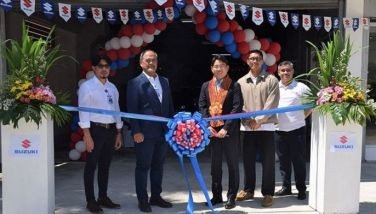Gas

Oil prices spiked again today. It is the third week in a row that substantial increases in oil happened and there is no clear indication the spiral is about to end.
This event underscores the necessity to rapidly develop our natural gas resources, too long the subject of unforgivable policy neglect. We could be sitting on large deposits of natural gas, especially in the Benham Rise.
But we do not really know. We have stopped exploring long ago. Exploration involves huge capital outlays. We did not have the policy framework to encourage investments in natural gas exploration.
In the 90s, we had about 100 exploration projects in progress. Today, that number fell to nearly nil.
Meanwhile, our neighbors Indonesia and Malaysia benefit from well-developed indigenous gas industries. They are now considered many years ahead of the Philippines in their production of natural gas.
Natural gas, which produces lower carbon emissions, is considered a “transition” fuel from petroleum to fully renewable energy sources. Renewable energy requires more technological development to bring down costs and improve reliability before we could fully move away from fossil fuels.
What caused us to neglect development of more natural gas sources?
After we pumped gas from the Malampaya field, we fell into complacency. We did not renovate our energy policies quickly enough to encourage sustained exploration and development of this energy source. Meanwhile, cheaper natural gas imports dissuaded domestic investments in the industry.
As we are now doing with rice, we went the way of indolence: importing what we could have produced if we tried to be better. As in the huge quantities of imported rice, we exposed ourselves to the vagaries of the international market. Imported liquified natural gas (LNG) proved only negligibly cheaper if the transport and processing costs are figured in. Without fully developed domestic natural gas sources, we had no way to enforce longer term certainty in our energy costs.
Reality dawned when it became clear the Malampaya field is close to fully exhausted. Gas from Malampaya fuels 40 percent of Luzon’s power demand.
Fortunately, some of our legislators, Sen. Pia Cayetano foremost among them, persisted in pushing through the congressional mill to get a new gas policy in place. The effort produced Republic Act 12120, known as the “Philippine Natural Gas Industry Development Act.” This is a historic piece of legislation.
With the freshly enacted law, new investments in gas exploration and development should be encouraged. It is now the responsibility of the Department of Energy to seek more investments to wean us away from our dependence on imported gas and ensure energy security for our growing economy.
Capricious
Esteemed jurist Artemio V. Panganiban, in his column yesterday, described the Comelec’s high-handed manner in dismissing “nuisance” candidates as “gravely abusive, arbitrary, whimsical and capricious.”
These might seem to be harsh adjectives coming from a jurist recognized for sagacious restraint. But the adjectives emanate from actual rulings of the Supreme Court reviewing actions of the Comelec.
The Court did find the Comelec guilty of “grave abuse of discretion” in the exercise of its quasi-judicial functions. The first such ruling involved the Comelec’s capricious exclusion without due process of Smartmatic in the bidding for the huge P18-billion automation contract.
This contract was eventually awarded to a lone bidder, Miru Systems of Korea. The manner of bidding immediately drew criticism, especially since it was using “prototype” technology contrary to the explicit requirement of law. The subsequent withdrawal of a Filipino partner from the winning consortium prompted demands for the contract be invalidated.
Recently, it was found out that the Election Management System (EMS) supplied by Miru fails to meet the requirements in the contract’s Terms of Reference. Specifically, the Miru-supplied EMS fails to meet specific capabilities, including “the ability to create, retrieve/read, update and delete (CRUD) without necessitating a new trusted build.”
Last week, the Court issued a restraining order on the Comelec’s printing of ballots to give way to five candidates for various positions earlier declared “nuisance” by the poll body. This resulted in about six million ballots having to be destroyed and printing postponed. Three additional candidates have been included in the Court’s restraining order.
The Comelec Chair now admits the printing is “slightly” off-schedule. That may be an understatement. It turns out the poll body needs to do a “new trusted build” of its entire data system to include the candidates reinstated by Court order. This is the direct result of the Comelec’s acceptance of Miru’s non-compliant EMS.
Among those candidates declared “nuisance” by the Comelec is Edgar Erice, seeking a congressional seat in Caloocan. Erice has been a strong critic of the poll body’s arbitrary dismissal of Smartmatic from the bidding and, subsequently, the awarding of the entire contract to Miru despite questions of the technology’s adequacy. After a Filipino partner withdrew from the Miru-led consortium, Erice called for the contract to be abrogated.
Erice did serve as congressman before. That means he meets all the technical requirements for candidacy. The only reason he was declared a “nuisance” candidate was that he caused the poll body to be piqued. He was disqualified entirely because of his policy disagreement with the electoral gods.
A review of the cases of the other candidates disqualified by the Comelec and ordered restored in the ballot reflects the same arbitrariness.
- Latest
- Trending



















